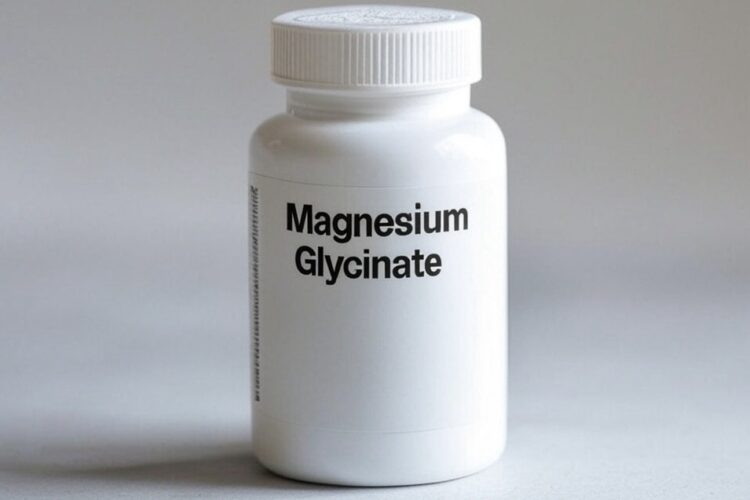Magnesium glycinate is a powerhouse supplement that combines magnesium, an essential mineral, with glycine, an amino acid, to form a highly bioavailable compound celebrated for its profound effects on health. Unlike other magnesium forms, its bioavailability and gentle absorption profile make it a go-to for addressing deficiency and supporting a range of physiological functions. This article dives deep into its science, benefits, and applications—covering everything from sleep and anxiety to bone health and blood sugar regulation.
What Is Magnesium Glycinate?
Magnesium is critical for over 300 enzymatic reactions in the body, yet deficiency is rampant due to poor diet choices and soil depletion. Magnesium glycinate stands out as a chelated form, where magnesium binds to glycine, enhancing absorption in the gut while minimizing digestive discomfort. This superior bioavailability distinguishes it from alternatives like magnesium oxide, making it a preferred supplement for those seeking tangible results.
Magnesium Glycinate and Sleep
One of the most celebrated benefits of magnesium glycinate is its impact on sleep. Magnesium regulates GABA, a neurotransmitter that promotes relaxation, while glycine further calms the nervous system. Studies show it reduces insomnia severity and improves sleep quality, especially in individuals with stress or anxiety. Unlike sedatives, it supports natural sleep cycles without grogginess, making it a staple for restless nights.
Anxiety, Stress, and Depression: A Calming Trio
Magnesium glycinate shines in mental health. Its role in modulating the HPA axis helps lower cortisol, tackling stress at its root. For anxiety, it enhances GABA activity, curbing overactive neural firing. Research also ties magnesium to depression, with glycine boosting serotonin production. Clinical trials suggest supplementation can alleviate mild-to-moderate symptoms, offering a natural adjunct to therapy.
Bone Health and Muscle Function
Magnesium is a cornerstone of bone health, working alongside calcium and vitamin D to maintain density and prevent osteoporosis. About 60% of bodily magnesium resides in bones, and deficiency accelerates loss. For muscle, magnesium glycinate excels at relaxation, reducing cramps, spasms, and tension—ideal for athletes or those with chronic tightness. Its synergy with glycine amplifies these effects, soothing overworked tissues.
Heart Health and Blood Pressure
The heart relies on magnesium for rhythm stability and vascular function. Magnesium glycinate supports blood pressure regulation by dilating blood vessels and countering sodium’s constrictive effects. Studies link adequate magnesium intake to lower hypertension risk, with its high absorption ensuring effective delivery. This cardiovascular support extends to arrhythmia prevention, making it a heart-friendly choice.
Blood Sugar and Metabolic Balance
Emerging research highlights magnesium glycinate’s role in blood sugar control. It enhances insulin sensitivity and glucose uptake, critical for managing diabetes or prediabetes. Deficiency disrupts these pathways, and supplementation can restore balance. Paired with a magnesium-rich diet, it offers a proactive approach to metabolic health.
PMS Relief and Hormonal Support
For women, magnesium glycinate is a game-changer for PMS. It reduces cramps, mood swings, and bloating by relaxing uterine muscle and stabilizing neurotransmitters. Glycine’s calming influence complements this, easing emotional volatility. Studies confirm magnesium supplementation cuts PMS severity, especially when paired with B6.
Why Bioavailability Matters
Not all magnesium supplements are equal. Forms like magnesium citrate or oxide have lower bioavailability, often causing diarrhea before delivering benefits. Magnesium glycinate’s chelation with glycine bypasses this, ensuring more magnesium reaches cells. This efficiency is why it’s recommended for correcting deficiency without taxing the gut.
Addressing Magnesium Deficiency
Up to 50% of people in industrialized nations may have subclinical magnesium deficiency, linked to diets low in greens, nuts, and seeds. Symptoms include fatigue, irritability, and muscle cramps—signals often masked by modern lifestyles. Magnesium glycinate, as a supplement, offers a targeted fix, with doses of 200-400 mg daily restoring levels effectively due to its stellar absorption.
The Role of Glycine
Glycine isn’t just a carrier—it’s a bioactive partner. This amino acid supports collagen synthesis, aids sleep, and reduces inflammation. In magnesium glycinate, it amplifies the mineral’s calming and restorative effects, creating a synergistic duo that outperforms magnesium alone.
Practical Applications and Dosage
Magnesium glycinate is versatile: take it for sleep at night, stress during the day, or muscle recovery post-workout. Typical doses range from 200-400 mg of elemental magnesium, though needs vary by age, sex, and deficiency status. Pairing it with a balanced diet—think spinach, almonds, and dark chocolate—maximizes benefits. Consult a doctor if you’re on medications like diuretics, which can alter magnesium levels.
Safety and Side Effects
Thanks to its high bioavailability, magnesium glycinate rarely causes the laxative effect common with other forms. Overdosing is unlikely with normal use, as excess magnesium is excreted via urine. However, those with kidney issues should seek medical advice, as impaired clearance can lead to toxicity.
The Bigger Picture: Magnesium in Modern Health
In a world of processed foods and chronic stress, magnesium glycinate bridges a critical gap. Its benefits span sleep, anxiety, bone, muscle, heart, blood pressure, blood sugar, and PMS—all rooted in its ability to correct deficiency and leverage glycine’s power. As a supplement, it’s a low-risk, high-reward tool for optimizing health.






